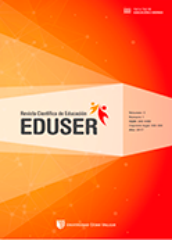A case of in-streaming-learning: how to program with Z-tree software to design experiments on economic decision making
DOI:
https://doi.org/10.18050/eduser.v6i2.2318Keywords:
Ztree, Economic decision making, Software of business research, Software economic decision making, In-streaming-learningAbstract
In this paper, we present a real in-streaming case of learning about how to program with the z-tree software to design experiments on economic decision making for the members of the NECE Research Unit in Business Sciences, in Portugal. This real case of in-streaming-learning was created to respond the need of a teaching method based on new technologies for people who could be in different parts of the world and with different time availability, but they also need to learn to program z-tree to use it in their experiments. Researchers and students learned the Ztree software applications in business research and economic decision making. Specifically, they learned: What is z-Tree software?; What is z-Tree software for?; What advantages does it have? and What applications can you obtain in business research?; How to get it for free?; Technical requirements; The structure of z-Tree software, and How is it to be programmed?; Then, we exposed a practical example for how to create a small experiment of economic decision-making, and, finally other more complex example (with interaction between experimental subjects). This learning has been valued positively, as very useful. The paper includes the web with the training in streaming on z-Tree.
Additional Files
Published
How to Cite
Issue
Section
License

This work is licensed under a Creative Commons Attribution-NonCommercial-NoDerivatives 4.0 International License.













